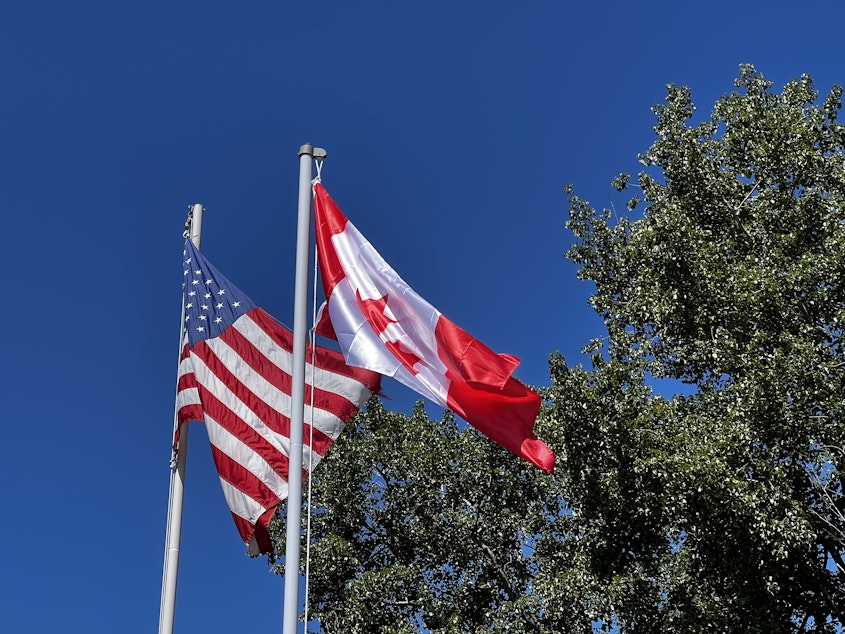After a close election, Canadians stand together against ‘the Trump factor’

Canadians are working through new political realities after a national election last week amid comments from President Donald Trump about Canada becoming the 51st state.
Journalist Michelle Elliot hosts the CBC weekday call-in program BC Today. She caught up KUOW’s Kim Malcolm on how things are going.
RELATED: Trump has said Canada should be the 51st state. Today, he meets its prime minister
This interview has been edited for clarity.
Kim Malcolm: A week ago today, Liberal Party leader Mark Carney, who's never held elected office before, defeated Pierre Poilievre of the Conservative Party to win a full term as prime minister. How surprising were these election results?
Michelle Eliot: They actually stuck pretty close to what the polling was saying prior to the election. They showed that the liberals would win. There would be a tight margin, and certainly we saw that margin closing in the final days of the campaign. What wasn't known, after the polls closed and well into the next day, was whether the Liberals would win a majority or a minority government.
So, just a quick primer here. There are 343 electoral districts, or ridings, in this election. That translates to how many seats there are in the House of Commons, which each of those MPs would represent. To form a majority, a party needs 172 seats. The Liberals got quite close. They were three short, with 169. The Conservatives were just behind when it came to the popular vote. This essentially means they have a minority government. That was what was up in the air for a while.
Carney does have a minority government now, but he says he has enough support to govern without having to form a coalition. What are you seeing there?
Usually what a minority government means is it just moves slower. They can't pass through legislation without support from other parties. We saw that impact under Justin Trudeau. The business of government was just impossible to do, so they couldn't move forward. But this time around, it's a stronger minority government.
But also, this is where you come in. Well, not you personally, Kim. But the United States and your president, Donald Trump. He was a big factor in this election, and now, a factor playing into how government will govern, because we have this kind of commitment from all the parties that they're going to work together because of the Trump factor.
RELATED: The impact of Trump's rhetoric on U.S.-Canada relations
The Conservatives have said — even though they had a very strong showing as well, they increased their seat count, increased their share of the popular vote — they will work with the Liberals. They would support measures to protect the Canadian economy and, ultimately, get a deal. Mark Carney, of course, is traveling to Washington now for that critical meeting with Donald Trump tomorrow.
Carney has drawn a fair amount of attention from around the world for standing up to President Trump and saying things like the special relationship between Canada and the U.S. is essentially over. There are a series of meetings set for this week. What are Canadians expecting to see out of this?
The expectation among Canadians is they're hoping that the question around the 51st state and all of that will be a non-starter. That's what Mark Carney has repeated time and again. He has said that, as you pointed out, this is about resetting that relationship between Canada and the United States. And he said they're not going to be easy discussions. It's not going to be a straight line, but he said he will fight for the best deal for Canada. So, there's going to be a lot of coverage of these meetings tomorrow for sure.
RELATED: Canadian Prime Minister Mark Carney to meet President Trump at White House
Listen to the interview by clicking the play button above.




